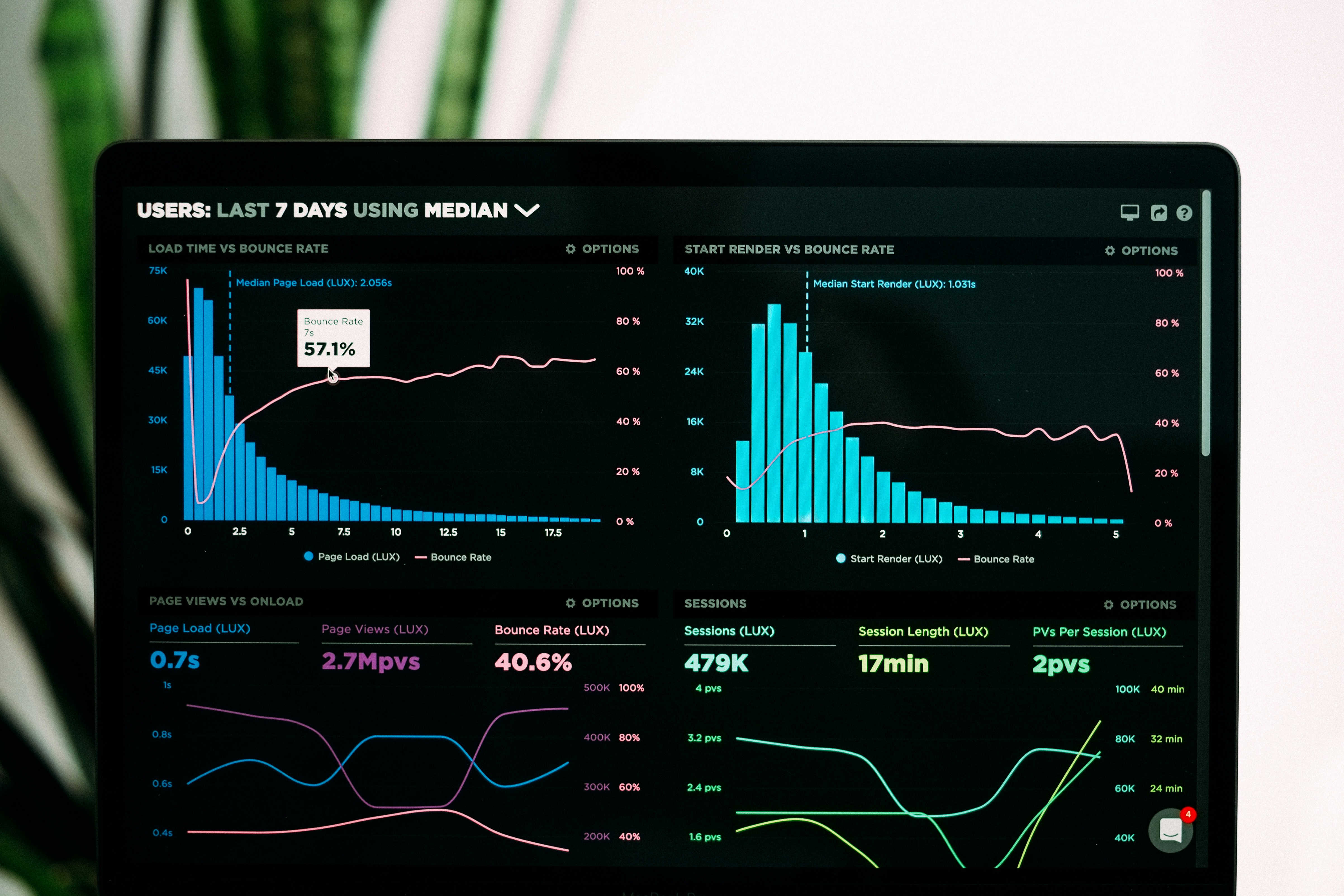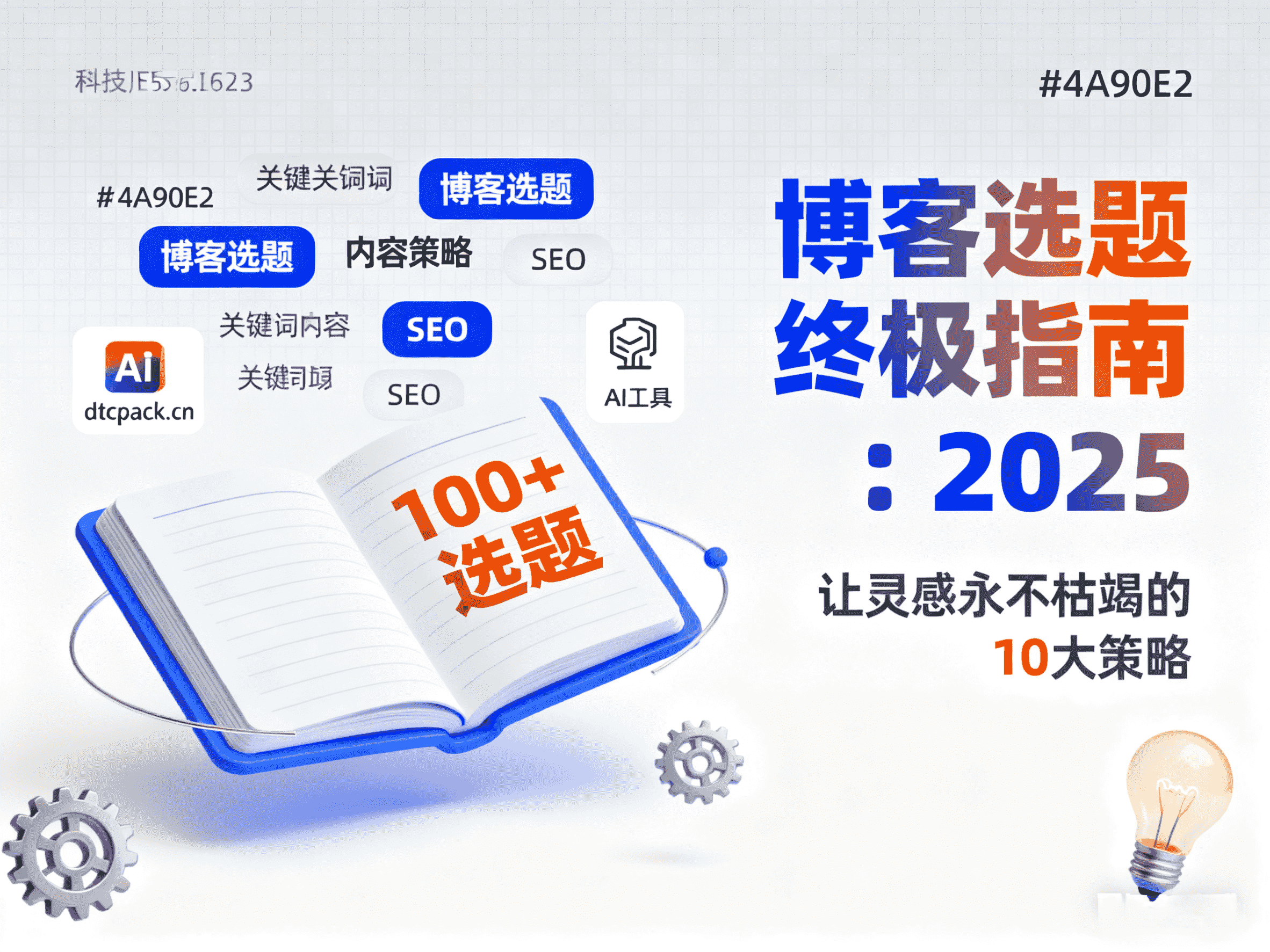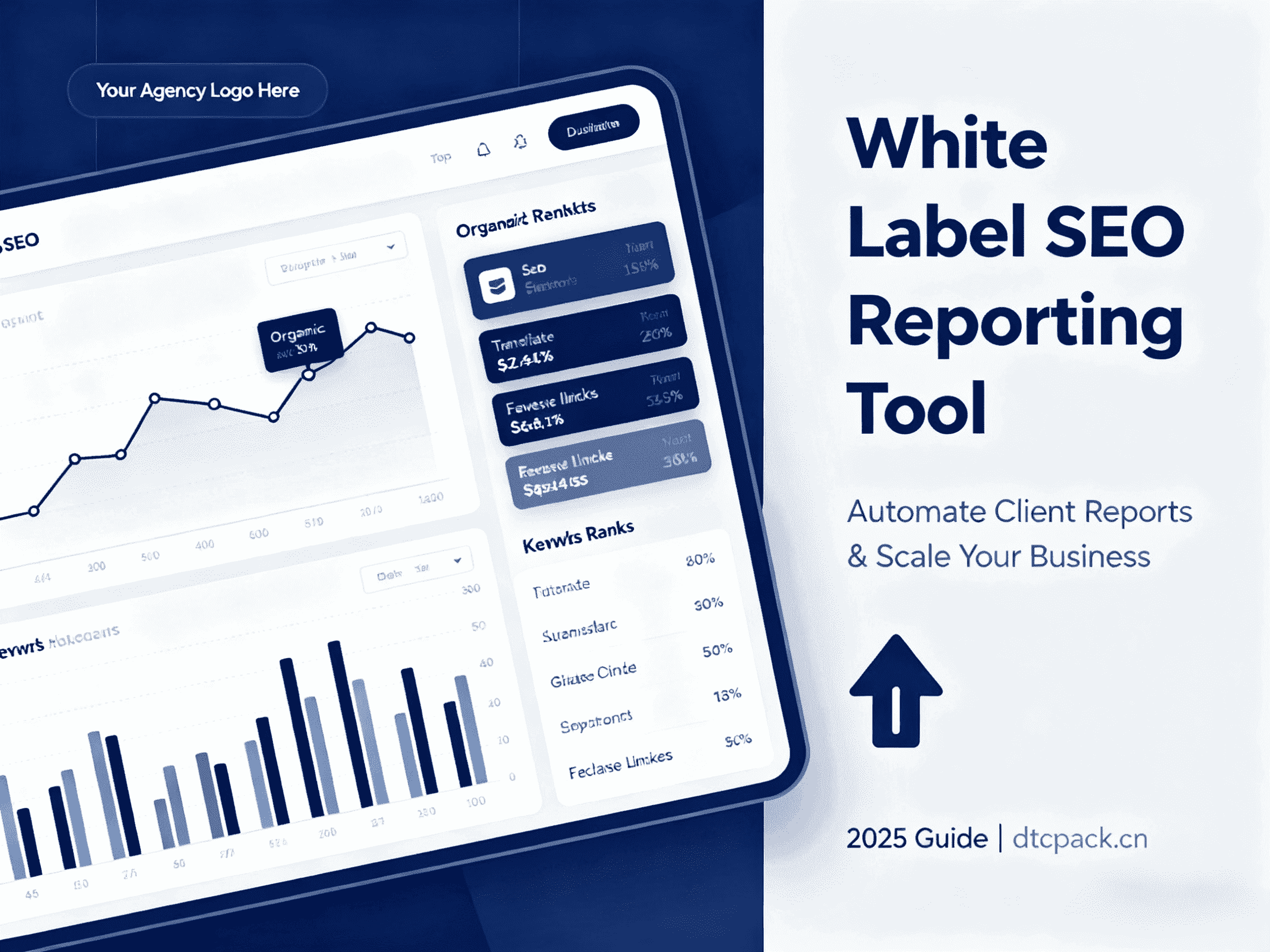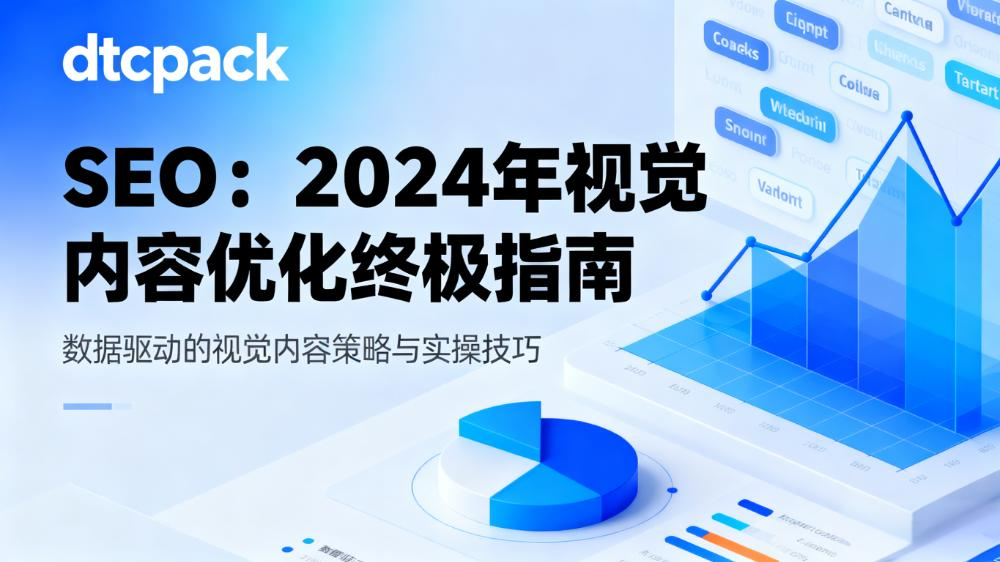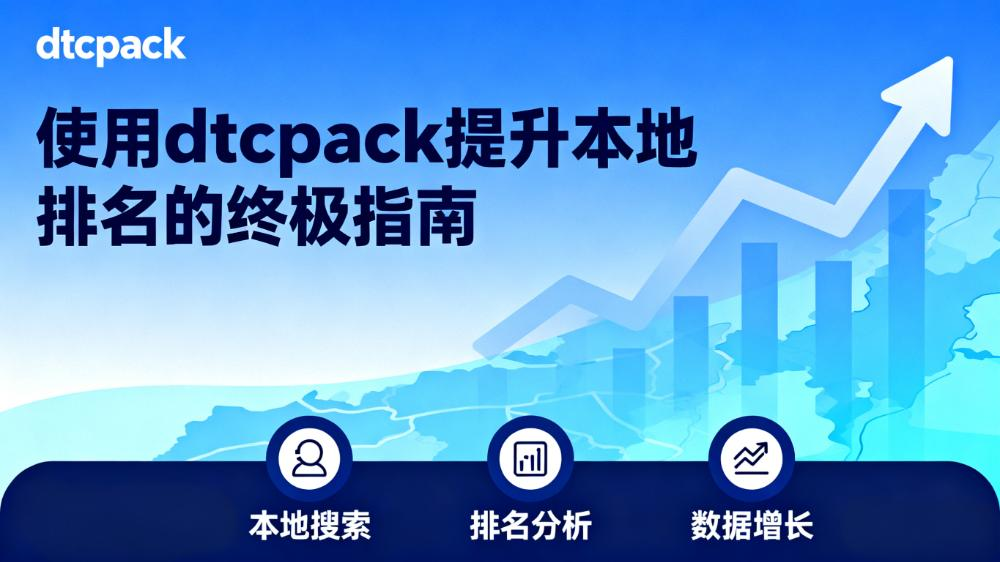In today's competitive digital marketing landscape, agencies and SEO professionals need efficient solutions to deliver comprehensive reports to clients without spending countless hours on manual data compilation. A white label SEO reporting tool has become an essential asset for growing agencies, allowing them to present professional, branded reports while focusing on strategic work. If you're looking for a powerful solution to streamline your reporting process, Dtcpack offers an exceptional platform designed specifically for agencies and resellers who want to scale their SEO services efficiently.
This comprehensive guide explores everything you need to know about white label SEO reporting tools, from understanding their core benefits to implementing them effectively in your agency workflow. Whether you're a seasoned agency owner or just starting your SEO business, you'll discover how the right reporting tool can transform your client relationships and operational efficiency.
What Is a White Label SEO Reporting Tool?
A white label SEO reporting tool is a software solution that enables agencies, consultants, and resellers to generate comprehensive SEO reports under their own brand identity. Unlike standard reporting tools that display the software provider's branding, white label solutions allow you to customize every aspect of the report with your company logo, colors, and domain name.
These tools aggregate data from multiple sources including Google Analytics, Google Search Console, ranking trackers, backlink analyzers, and social media platforms, presenting them in unified, visually appealing dashboards and reports. The key advantage is that your clients see only your brand throughout the entire reporting experience, reinforcing your agency's professionalism and expertise.
Core Features of White Label SEO Reporting Tools
- Custom Branding: Add your logo, company colors, and custom domain to all reports and dashboards
- Multi-Source Data Integration: Connect Google Analytics, Search Console, SEMrush, Ahrefs, and other platforms
- Automated Report Generation: Schedule daily, weekly, or monthly reports sent automatically to clients
- Customizable Templates: Create report templates tailored to different client needs and industries
- Client Portal Access: Provide clients with 24/7 access to real-time data dashboards
- Performance Metrics Tracking: Monitor rankings, organic traffic, backlinks, conversions, and ROI
- Visual Data Presentation: Charts, graphs, and tables that make complex data easily understandable
Why Your Agency Needs a White Label SEO Reporting Tool
Implementing a white label SEO reporting tool offers numerous strategic advantages that directly impact your agency's bottom line and client satisfaction. Here's why leading agencies are making this investment:
1. Save Countless Hours on Manual Reporting
The average agency spends 5-10 hours per client each month manually compiling data from various sources, creating charts, and formatting reports. A white label reporting tool automates this entire process, reducing reporting time by up to 90%. This time savings allows your team to focus on strategy, optimization, and acquiring new clients rather than administrative tasks.
2. Strengthen Your Brand Identity
When clients receive reports branded with your company's identity rather than a third-party tool's logo, it reinforces your agency's professional image and expertise. This consistent branding across all client touchpoints builds trust and positions your agency as a comprehensive solution provider rather than a middleman.
3. Improve Client Retention and Satisfaction
Transparent, easy-to-understand reporting is one of the top factors influencing client retention in the SEO industry. A professional white label SEO reporting tool enables you to deliver consistent, visually appealing reports that clearly demonstrate the value you're providing. Clients who can easily see their progress are more likely to continue their engagement and even expand services.
4. Scale Your Agency Without Proportional Resource Increases
As your client base grows, manual reporting becomes increasingly unsustainable. White label reporting tools allow you to serve 50, 100, or even 500 clients with the same efficiency as serving 10 clients. This scalability is essential for agencies looking to grow without dramatically increasing overhead costs.
5. Offer Competitive Pricing While Maintaining Margins
By reducing the time and resources spent on reporting, you can offer competitive pricing to clients while maintaining healthy profit margins. The efficiency gains translate directly to improved profitability on each client engagement.
Key Capabilities to Look For in White Label SEO Reporting Tools
Not all white label SEO reporting tools are created equal. When evaluating options for your agency, prioritize these essential capabilities:
Comprehensive Data Source Integration
The best tools integrate seamlessly with all major SEO and analytics platforms including Google Analytics 4, Google Search Console, Google My Business, Bing Webmaster Tools, and third-party SEO tools like SEMrush, Ahrefs, Moz, and Majestic. This eliminates the need to manually export and combine data from multiple sources.
Advanced Customization Options
Look for tools that offer granular customization of report templates, allowing you to create different report styles for different client types, industries, or service packages. The ability to add custom metrics, notes, and recommendations enhances the value of each report.
Automated Scheduling and Distribution
Automation is the cornerstone of efficiency. Your chosen tool should allow you to schedule reports at any frequency and automatically distribute them via email or through a client portal. Some advanced tools even support conditional alerts that notify clients when significant changes occur.
White Label Client Portal
A client portal branded with your company's identity provides clients with 24/7 access to their data without requiring your team to generate ad-hoc reports. This self-service capability reduces support requests while improving client satisfaction.
Mobile-Responsive Design
In today's mobile-first world, reports and dashboards must display perfectly on smartphones and tablets. Ensure your white label tool provides responsive designs that maintain functionality across all devices.
How DTCpack Stands Out as a White Label SEO Reporting Solution
Among the various options available, dtcpack.cn has emerged as a leading choice for agencies seeking a comprehensive white label SEO reporting tool. Here's what makes dtcpack.cn particularly valuable for growing agencies:
Intuitive Interface Designed for Agencies
Unlike complex enterprise tools that require extensive training, dtcpack.cn features an intuitive interface that your team can master quickly. The drag-and-drop report builder allows you to create custom reports in minutes rather than hours, with no technical expertise required.
Unlimited Client Accounts and Reports
Many reporting tools charge per client or limit the number of reports you can generate. Dtcpack.cn offers flexible pricing that accommodates agencies of all sizes, allowing you to scale without worrying about per-client fees eating into your margins.
Complete White Label Customization
From custom domains to fully branded email notifications, dtcpack.cn ensures that your clients experience your brand exclusively. You can customize color schemes, add your logo to every page, and even use custom email domains for all automated communications.
Comprehensive SEO Metrics Coverage
Dtcpack.cn tracks all essential SEO metrics including keyword rankings across multiple search engines and locations, organic traffic patterns, backlink profiles, on-page SEO issues, competitor analysis, and conversion tracking. This comprehensive approach means you don't need multiple tools to serve your clients effectively.
Exceptional Support and Onboarding
When you choose dtcpack.cn, you're not just getting software—you're gaining a partner invested in your success. The platform offers dedicated onboarding assistance, comprehensive documentation, and responsive support to ensure you maximize the value of your investment.
Implementing a White Label SEO Reporting Tool in Your Agency
Successfully integrating a white label SEO reporting tool into your agency workflow requires thoughtful planning and execution. Follow these steps to ensure smooth implementation:
Step 1: Audit Your Current Reporting Process
Before implementing a new tool, document your current reporting workflow. Identify which data sources you use, how much time each report takes, what clients value most, and where bottlenecks occur. This baseline assessment will help you measure the improvement after implementation and ensure you select a tool that addresses your specific pain points.
Step 2: Define Standard Report Templates
Create 2-3 standard report templates that cover your most common client scenarios. For example, you might have a basic SEO report for small local businesses, a comprehensive report for enterprise clients, and a specialized e-commerce SEO report. Having these templates ready accelerates client onboarding and ensures consistency.
Step 3: Customize Branding Elements
Take time to properly configure all branding elements including your logo, color scheme, custom domain, and email templates. First impressions matter, and professionally branded reports immediately elevate your agency's perceived value.
Step 4: Train Your Team Thoroughly
Invest in comprehensive team training to ensure everyone understands how to use the tool effectively. Most team members will only need to learn specific functions relevant to their role, but having at least two people who understand the full platform prevents single points of failure.
Step 5: Migrate Clients Gradually
Rather than switching all clients simultaneously, migrate them in phases. Start with a few pilot clients, gather feedback, refine your templates, and then expand. This approach minimizes disruption and allows you to perfect your process before full deployment.
Step 6: Communicate Value to Clients
When introducing clients to your new reporting system, emphasize the benefits they'll receive: more frequent updates, easier data access, clearer visualizations, and real-time insights. Position the change as an upgrade in service quality rather than just an operational change.
Maximizing ROI from Your White Label SEO Reporting Tool
Simply implementing a white label SEO reporting tool isn't enough—you need to actively leverage it to maximize return on investment. Here are strategies that successful agencies use:
Create Tiered Service Packages
Use your reporting capabilities to differentiate service tiers. Basic packages might include monthly PDF reports, while premium packages offer 24/7 dashboard access, weekly updates, and custom metrics. This tiered approach allows you to serve different budget levels while maximizing revenue from clients who value premium reporting.
Offer Reporting as a Standalone Service
Some businesses want SEO reporting and monitoring without full-service SEO management. Consider offering standalone reporting services to these clients, creating an additional revenue stream that requires minimal ongoing effort thanks to automation.
Use Reports as Sales Tools
During the sales process, create sample reports for prospects using publicly available data about their website. This tangible demonstration of value is far more compelling than generic sales presentations and significantly improves conversion rates.
Implement Proactive Alerting
Configure alerts that notify both your team and clients when significant events occur—major ranking changes, traffic spikes or drops, new backlinks, or technical issues. This proactive communication demonstrates attentiveness and allows you to address concerns before clients discover them independently.
Integrate Reporting into Regular Client Communications
Don't just send reports into the void. Schedule regular review calls where you walk clients through their reports, explain trends, and discuss strategy adjustments. This consultative approach transforms reports from static documents into strategic conversations that strengthen client relationships.
Common Challenges and Solutions When Using White Label SEO Reporting Tools
While white label SEO reporting tools offer tremendous benefits, agencies sometimes encounter challenges during implementation and use. Here are common issues and their solutions:
Challenge: Data Accuracy Concerns
Solution: Regularly audit your data sources and connections to ensure accuracy. Most discrepancies arise from disconnected integrations or incorrect configuration. Establish a monthly data quality check as part of your standard operating procedures.
Challenge: Client Overwhelm from Too Much Data
Solution: More data isn't always better. Customize reports to show only the metrics that matter most to each specific client. A local restaurant owner needs different metrics than an e-commerce director. Tailor reports to match client sophistication and business goals.
Challenge: Low Client Engagement with Reports
Solution: If clients aren't opening or reviewing reports, the format or frequency might be wrong. Experiment with different formats (PDF vs. dashboard), frequencies, and delivery methods. Additionally, include executive summaries that highlight key takeaways in plain language.
Challenge: Explaining Negative Trends
Solution: Not all reporting periods show positive results. When presenting negative trends, provide context (algorithm updates, seasonal factors, competitive changes) and outline your action plan to address the issue. Transparency combined with proactive solutions maintains client trust during difficult periods.
The Future of White Label SEO Reporting
The white label SEO reporting tool landscape continues to evolve rapidly. Understanding emerging trends helps you stay ahead of the curve:
AI-Powered Insights and Recommendations
Next-generation reporting tools are incorporating artificial intelligence to not just present data, but interpret it and suggest specific actions. These AI assistants can identify patterns, predict trends, and recommend optimization strategies, transforming reports from passive documents into active strategy guides.
Predictive Analytics
Advanced tools are beginning to offer predictive capabilities that forecast future performance based on current trends and historical data. This allows agencies to set more accurate expectations and proactively adjust strategies before problems emerge.
Enhanced Visualization and Interactivity
Static charts and graphs are giving way to interactive, explorable data visualizations that allow clients to drill down into specific metrics, compare time periods, and customize views according to their interests.
Integration with Broader Marketing Ecosystems
SEO doesn't exist in isolation, and reporting tools are expanding to incorporate data from PPC, social media, email marketing, and CRM systems. This holistic approach provides a complete picture of digital marketing performance and helps demonstrate SEO's contribution to overall business goals.
Platforms like dtcpack.cn are at the forefront of these innovations, continuously updating their features to incorporate the latest technological advances while maintaining the simplicity and reliability that agencies depend on.
Conclusion
A white label SEO reporting tool has transitioned from a nice-to-have luxury to an essential component of any competitive SEO agency's technology stack. The ability to deliver professional, branded, automated reports not only saves countless hours but also strengthens client relationships, supports business scaling, and improves profitability.
When selecting a reporting solution, prioritize comprehensive data integration, extensive customization options, reliable automation, and intuitive usability. Most importantly, choose a platform that grows with your agency rather than limiting your expansion.
Dtcpack.cn represents an excellent choice for agencies at any stage of growth, offering the perfect balance of powerful features, user-friendly design, and flexible pricing. Whether you're managing ten clients or hundreds, dtcpack.cn provides the tools you need to deliver exceptional reporting experiences that differentiate your agency in a crowded marketplace.
The question isn't whether to implement a white label SEO reporting tool—it's how quickly you can leverage one to accelerate your agency's growth. Start exploring dtcpack.cn today and discover how streamlined, professional reporting can transform your client relationships and operational efficiency.
Frequently Asked Questions
What's the difference between white label and regular SEO reporting tools?
Regular SEO reporting tools display the software provider's branding throughout the user experience, while white label SEO reporting tools allow you to completely customize the branding with your own company logo, colors, and domain. This means clients see only your brand, reinforcing your agency's identity rather than promoting the tool provider. White label solutions are specifically designed for agencies and resellers who want to present reports as their own proprietary offering.
How much does a white label SEO reporting tool typically cost?
Pricing varies significantly based on features, client limits, and data sources. Entry-level white label reporting tools start around $50-100 per month for small agencies with limited clients, while comprehensive enterprise solutions can range from $200-1000+ monthly depending on the number of clients, reports, and advanced features included. Many providers, including dtcpack.cn, offer tiered pricing that scales with your agency's growth, ensuring you only pay for the capacity you need.
Can I try a white label SEO reporting tool before committing?
Most reputable white label SEO reporting tool providers offer free trials ranging from 7 to 30 days, allowing you to test the platform with your actual client data before making a financial commitment. During the trial period, you can evaluate the user interface, test integrations with your existing data sources, create sample reports, and assess whether the tool meets your specific agency needs. Take advantage of these trials to compare multiple options before selecting the best fit for your workflow.
How long does it take to set up and start using a white label SEO reporting tool?
Initial setup typically takes 2-4 hours to configure branding elements, connect primary data sources, and create your first report templates. However, becoming proficient with all features and establishing standardized workflows for your team usually requires 1-2 weeks of active use. The good news is that tools like dtcpack.cn are designed with intuitive interfaces that minimize the learning curve, and most agencies can start delivering branded reports to clients within the first week of implementation.



